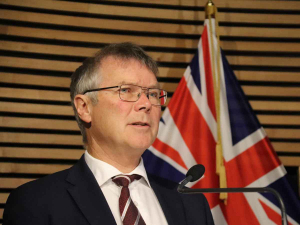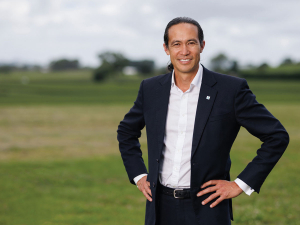Parker says the current system is broken.
“Today the Government is introducing the Natural and Built Environment and the Spatial Planning Bills that will replace the Resource Management Act and address these long-standing problems with the current system, while saving the economy hundreds of millions of dollars,” he says.
Parker claims the new system will deliver both economic and environmental benefits.
“For every $1 spent the new system is expected to deliver $2.58 to $4.90 in benefits.
“On a conservative estimate cost to users will fall by 19 per cent a year, or $149m, equal to more than $10 billion in cost savings over 30 years,” he says.
However, ACT leader David Seymour claims the new bills are merely a retread of the RMA.
“Like Labour’s healthcare, polytechnic, and three waters reforms, the reforms are more focused on the administrative structure for Government employees than the outcome for people,” he says.
He says that while the reforms sound great, they amount to little more than a change of administration.
“The reality of this reform is that a new and more centralised bureaucracy will write plans with different headings but the same basic content. Little really changes from the point of a property owner.
“Resource management is fundamentally flawed. It means the council decides what you do on your own land, so you’re always asking permission. Not much ends up getting done because there’s too much confusion over who has the right to develop and use which property.”
Agriculture Minister Damien O’Connor says the current system takes too long, costs too much and doesn’t adequately provide for development nor manager cumulative environmental effects.
He says the shortcomings of the Resource Management Act (RMA) are well known.
“The new system aims to reduce reliance on consenting and have clearer directions in plans for different parts of New Zealand on what is permitted and prohibited,” he says.
O’Connor says how water is managed into the future is highly important and the changes in the bills bring a more deliberate and strategic approach.
“That will include the principles of efficiency of use, investment, sustainability and fairness added to allocation decisions.”
He says the new system will have clearer environmental limits and greater use of permitted activities that will not require a consent.
“This is a huge reform programme and we anticipate that the Select Committee phase will reveal improved ways to manage resources so work can happen more quickly and incur less cost.
“It’s vitally important that the rural voice is heard during that period and I encourage farmers and organisations to make submissions.”
The third piece of the reform, the Climate Adaptation Act, will be introduced later.










